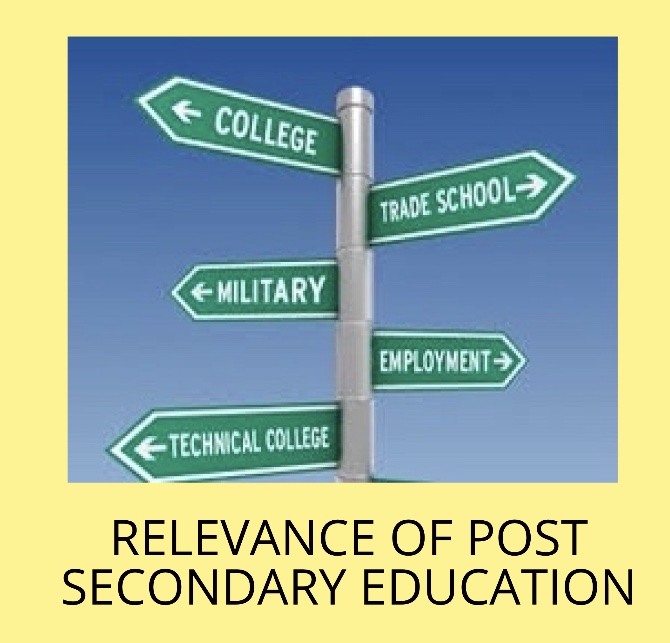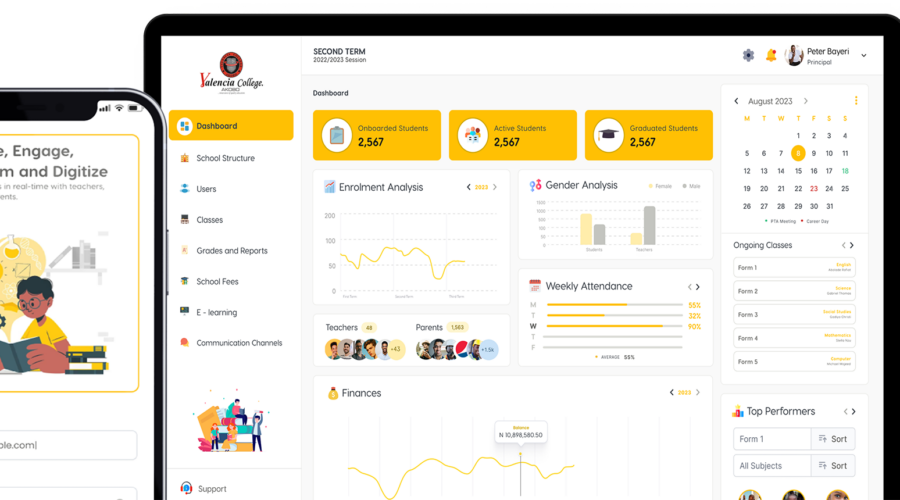RELEVANCE OF POST SECONDARY EDUCATION
Post-secondary education is a term that refers to a number of different kinds of education that people can pursue after completing high school. There are many different purposes for post-secondary education, meaning that people need to make careful choices to make sure that they enrol in the kind of program that will help them achieve their particular goals. Many people choose to go to college to pursue a two- or four-year degree, while others attend trade and vocational schools, usually earning a diploma or certificate. There are a number of different types of colleges that have their own structures and requirements. Some are extremely competitive, while others are more likely to accept most applicants. A post-secondary student is anyone who attends such an institution.
Higher education requires certain prerequisite qualifications before applicants can attend the school of their choice. Typically, individuals must have a high school diploma or equivalent in order to enrol. Some post-secondary institutions may require specific qualifications, including extracurriculars, volunteer hours, experience in the desired area of study, and more. Some kinds of post-secondary institutions focus on education that picks up where high school left off. Associate’s degrees and bachelor’s degrees, as well as most trade school diplomas and certificates, fall into this category. Other post-secondary qualifications, like master’s degrees and professional and doctoral degrees, require prior post-secondary education beyond a high school diploma before individuals can apply
Post-secondary institutions can be public or private. This refers to the kind of funding that they receive. Publicly funded institutions receive their funding from the government as well as student tuition, whereas private institutions are exclusively funded by tuition and by some private donors. As a result, private institutions tend to have higher tuition than their public counterparts. Another dichotomy in colleges is their profit model. Some post-secondary institutions are non-profit, meaning that their primary priority is putting their funding toward the education that they provide. For-profit schools, on the other hand, are businesses that often provide lower-quality degrees and certifications. A for-profit vocational post-secondary institution might award a certificate that has limited real-world applicability compared to a comparable non-profit school.
In this article, you will learn some of the relevance of post secondary education;
1. It increases job opportunities:
The higher the educational qualifications, the better the job opportunities. Students who opt for a post secondary education have an edge over students who don’t since they are open to more jobs with good remuneration.
2. It widens students knowledge;
No knowledge is a waste and the knowledge acquired in both secondary and post secondary levels of education will help students to gain more insights and also deepen their knowledge such that they can become the best version of themselves.
3. It improves students network:
It is a known fact that your network is your net worth and having a post secondary education increases a student’s chances of meeting and connecting with people that can help them later in future.
Are you a school owner and you need a web solution to automate your school work click here to signup for free.




